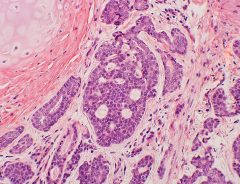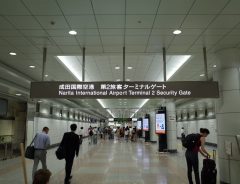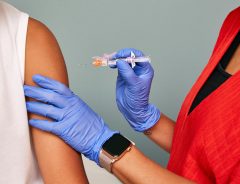
Source: Graphs | © PIXTA
It’s not easy to get a coronavirus test in Japan [Interview with a Tokyo resident]
- Tags:
- call center / coronavirus / COVID-19 / health center
Related Article
-

Went to see “Demon Slayer: Kimetsu no Yaiba The Movie: Mugen Train” at the cinema in Japan
-

Kyoto University scientists create mini bronchi to test COVID-19 drugs
-

Japan to Partially Lift Travel Ban
-

International English Study Program to the USA includes vaccination for students from Japan
-

Japanese music venues struggling in pandemic launch live streaming festival Music Unity 2020
-

Japanese university releases free printable 3D big tuna mask covers


As the novel coronavirus continues to spread, the Japanese government has implemented what many are calling an obtuse and ambiguous system to deal with those showing symptoms of COVID-19.
Anyone believed to be infected or to have been in contact with an infected person must first call a special hotline to report their symptoms. However, as the Japan Times reported on February 26th, current criteria for testing are vague and overly focused on severe cases. If the hotlines deem a caller severe enough to warrant testing, they will be forwarded on to one of a limited number of health centers with testing kits. Even then, there are reports of patients being turned away for tests, as doctors apparently struggle to get to grips with this new virus.
In order to find it just how difficult it is to get tested in Japan, we managed to arrange a phone interview with a Tokyo resident who had shown symptoms of COVID-19 to hear their first hand experience of Japan’s support system.
Please share your name and some basic information about yourself
My name is Jack, I have lived and worked in Tokyo for 6 and a half years now as a researcher. My Japanese is near fluent but I’m originally from Australia.
Thanks for taking the time to call Jack. So you experienced coronavirus symptoms? Can you tell us a little more?
Sure. About mid-February, I woke up really early and I was having difficulty breathing. I’m in my early thirties and I’ve never experienced breathing difficulties before so I was pretty worried. I took my temperature and it was high, 37.3. Even when I was walking to my thermometer, it was so exhausting and I realized all my muscles were aching too. I took a sickie, went straight back to bed and just slept until late afternoon.
That sounds awful. So when did you suspect it was coronavirus and when did you call the hotline?
Well, I’d travelled to Europe the week before for work. I felt fine the whole trip, but you know with planes being giant incubators for disease and all that, I was a little concerned about catching the virus while traveling. So the moment I woke up, struggling to breath, I thought: I’ve got coronavirus.
I waited 4 days in total though before calling the hotline. I was umming and ahhing about it for a few days, just waiting to see if I got better. Anyway, on Sunday, that’s day 4, I was still having difficulty breathing but I had work the next day. I didn’t want to risk infecting my colleagues so at that point I really had to be sure what was up with me. So I called the hotline.
And, what was your experience?
The whole thing was a bit of a joke to be honest. I had to call 4 hotlines and tell them the same things before they recommended a Health Centre. The first number I called was the general hotline number they showed on TV (0120-565-653). First few calls and my phone showed: “caller busy, call back later”. Eventually I got through though and I explained my symptoms. They were very particular about the minimum requirements, at least 4 days of fever over 37.5 degree and a cough. I didn’t have a cough actually but because of my breathing difficulties they said I needed further consultation. So they gave me the second number (03-5320-4592), a special out of hours coronavirus support centre for the weekend.
So you were passed on to a second hotline?
Yeah. I called them and they asked for details of where I lived. Based on that they gave me a number for the Ward Health Centre. The only place equipped to support the coronavirus in my ward. That health centre closed at 5PM though and they said the line was flooded so they gave me a second number which they said I could call if I felt I needed to see a doctor urgently.
The third number (not included here to protect our interviewees' identity) I called was for my Ward Health Centre. I must’ve tried 9 times, according to my call history, to get through but it was constantly busy. Maybe it was because it was the weekend.
Then I called the second number (03-5285-8181) they gave me. It got through pretty fast but they were just an intermediary that connects callers with an available clinic. I explained my symptoms and I was waiting for around 15 minutes while they called to find a medical Centre nearby that would see me on Sunday with my coronavirus symptoms. Eventually they say they’ve found a place that will see me, Cap’s Clinic. They asked me to go see them ASAP.
So there you have it, I had to call 4 different numbers until I could find a doctor. Granted it was Sunday but that’s when you’re likely to get more calls right?
It sounds like you were passed around a lot. So what did Cap’s Clinic say?
Well, I’ll never know. I called the clinic just to let them know I was coming. But they wouldn’t accept the referral I’d been given on the phone a moment ago. They asked my symptoms again and said please call the Corona Helpline before coming, to confirm whether you need to see a doctor. Then call us back….
I could not believe it. It was really rude, really bureaucratic. I explained that I’d been told by the hotline the doctor in Cap’s Clinic had agreed to see me. I even explained I’d called four hotlines. They weren’t having it though, still “please call the coronavirus hotline”.
I could have just gone to the clinic anyway, I don’t think they would have turned me away if I'd showed up on their doorstep. But I was tired at this point so I just gave up and decided to go to the doctor first thing Monday morning instead.
That’s worrying to hear. Do you get the impression hotlines and clinics don’t want to deal with the coronavirus?
That’s the feeling I got. It’s a classic case of tarai-mawashi たらい回し (Japanese for “passing the buck”). No one wants to deal with something so they just pass you off to the next person. But in this case this response seemed almost institutionalized, like it was an acceptable method of handling people who are sick. I was shocked and to be honest, I’ve lost faith in the Japanese medical system after this experience.
It definitely raises questions as an approach to a public health emergency. So how about the doctor on Monday?
I saw the doctor near my home early Monday morning. He took my temperature, 37.4 and listened to my breathing which I was most concerned about. He said he was a little worried about my temperature though, but other than that he didn’t see any discernible symptoms of Corona. He said it was okay to go to work and just monitor my temperature. If it gets higher in the next two days, then..”drum roll please”...call the coronavirus hotline. I asked whether he could do a chest X-ray because I was particularly concerned about my breathing and he said he didn’t think it was necessary.
I took another couple of days off work to rest and after that I was better. So there you go, my...failed mission to get a coronavirus test.
Thanks, Jake. It sounds like it was a frustrating experience for you, but thanks for sharing it with us all the same. We’re glad you’re better now. Any final words for our readers?
Thanks to you guys too for doing the call and sharing my experience. I have some final advice: if you develop coronavirus symptoms, try to take rest for a few days before trying the helplines. Based on my experience and what I’m reading online, the virus can be overcome with rest in around 95% of cases. Also you’ll save a lot of time getting passed around through Japanese call centers.
This interview was recorded on March 4th 2020 over the phone. The real name of the interviewee has been changed for the purpose of privacy. Jack confirmed he conducted phone calls using both English and Japanese.
For anyone concerned about the coronavirus who is living in or visiting Japan, please check the following websites for advice: